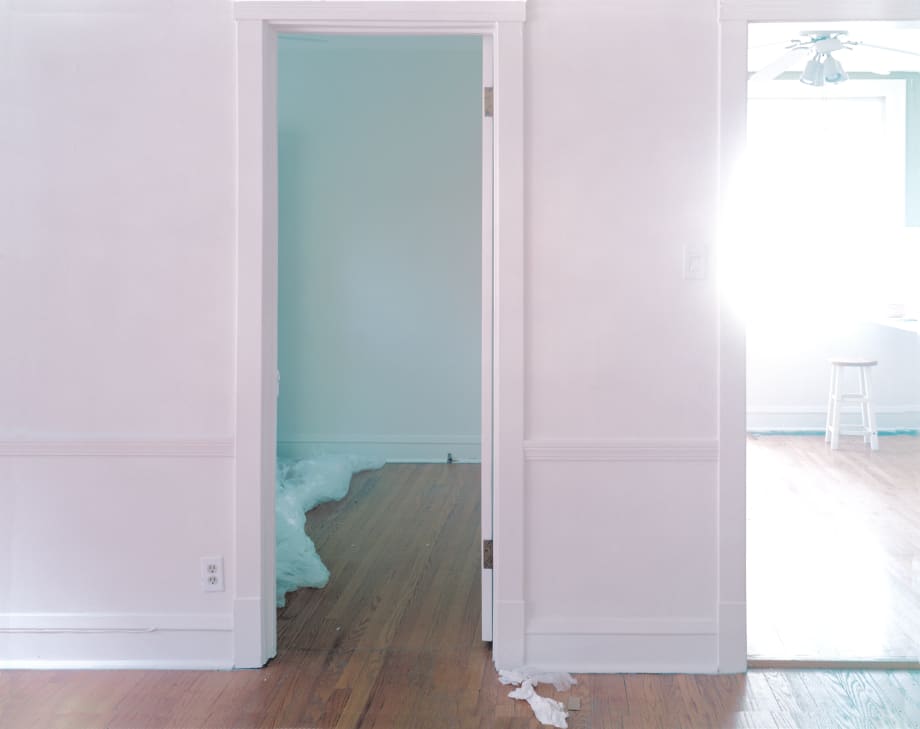For the first time in 7 years, Laura Letinsky will unveil two new bodies of work in Somewhere Somewhere. This exhibition marks the culmination of Letinsky’s ongoing series of still-life photographs (Morning and Melancholia, I did not remember I had forgotten, and Hardly More Than Ever 1997 – 2004) and reveals a simultaneous focus on household interiors and gardens. In the new work, Letinsky continues to investigate the sentimental and romantic transformations of everyday life and meditate on the moment before and after events. To do this, she has pulled away from the tabletop and visually treats us to an increasingly panoramic view of the home and domesticity.
“Throughout my photographic practice I wish to engage the photograph’s transformative qualities, changing what is typically overlooked into something beautiful. I want to look at what is “after the fact,” at what (ma)lingers, at what persists, and by inference, at what is gone. These projects are part of my ongoing photographic exploration of intimacy as the homely and the beautiful.”
For Letinsky, “home” is a site of contradictions. The pictures seek to articulate the tension between what actually happened and what might have been. The interiors are the result of Letinsky’s new practice of photographing people’s former-and-future homes, places that for some people mark a past they have left behind and for others a future that they have yet to inhabit. These ideas are partially captured in Freud’s idea of the uncanny – the unheimlich or the un-homely — and visually represented by Letinsky through describing the pale patches on wall where picture hung, streaking light beams through dusty windows, the potted plant that at the 11th hour just did not fit into the moving van. The gardens, on the other hand symbolize a state of bliss that is forever out of reach — a site that belies the picturesque and instead speaks to the garden’s paradisiacal promise and its marvelous deviation. The tension between the ideal and the imperfect present reveals a collapse of the dichotomies that supposedly separate nature and man.

